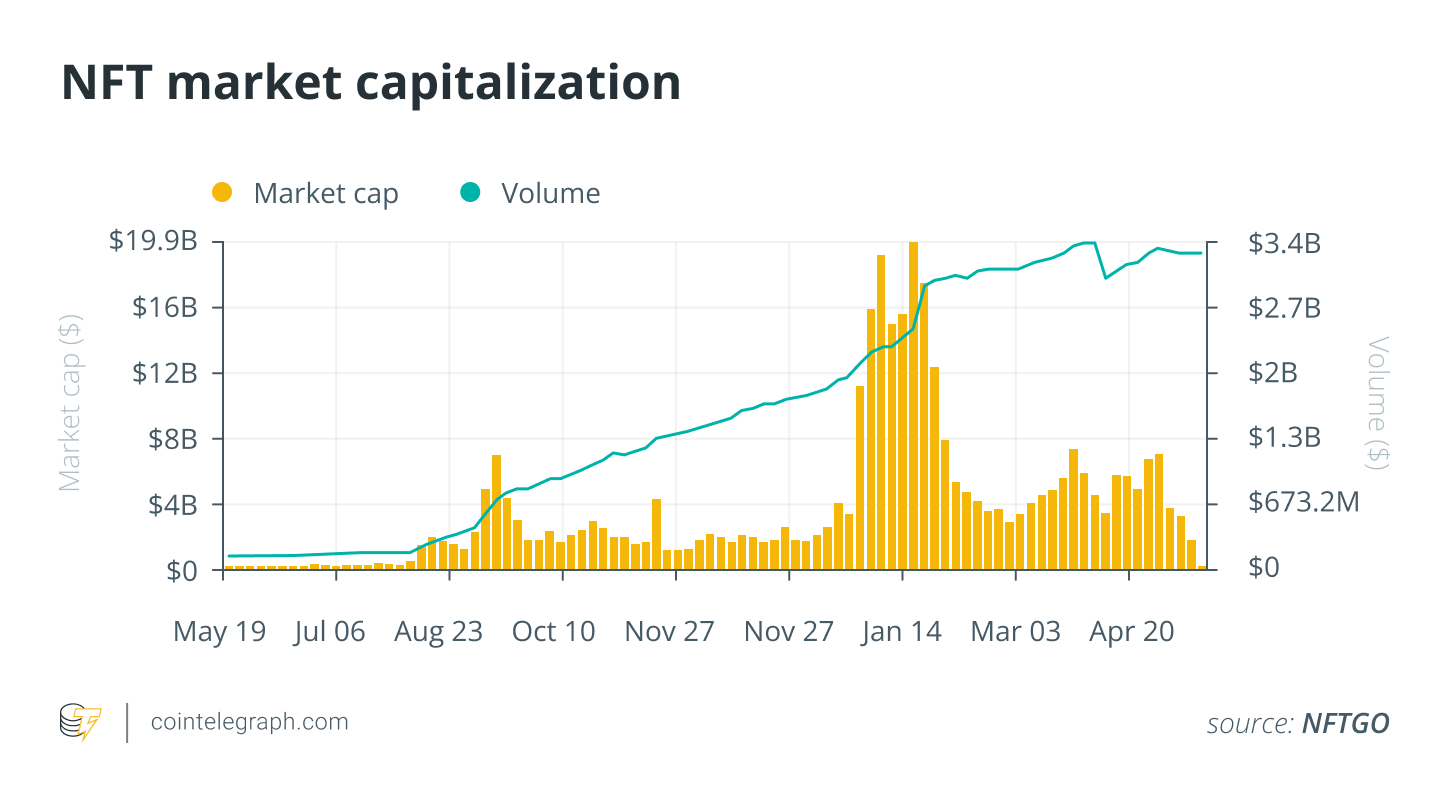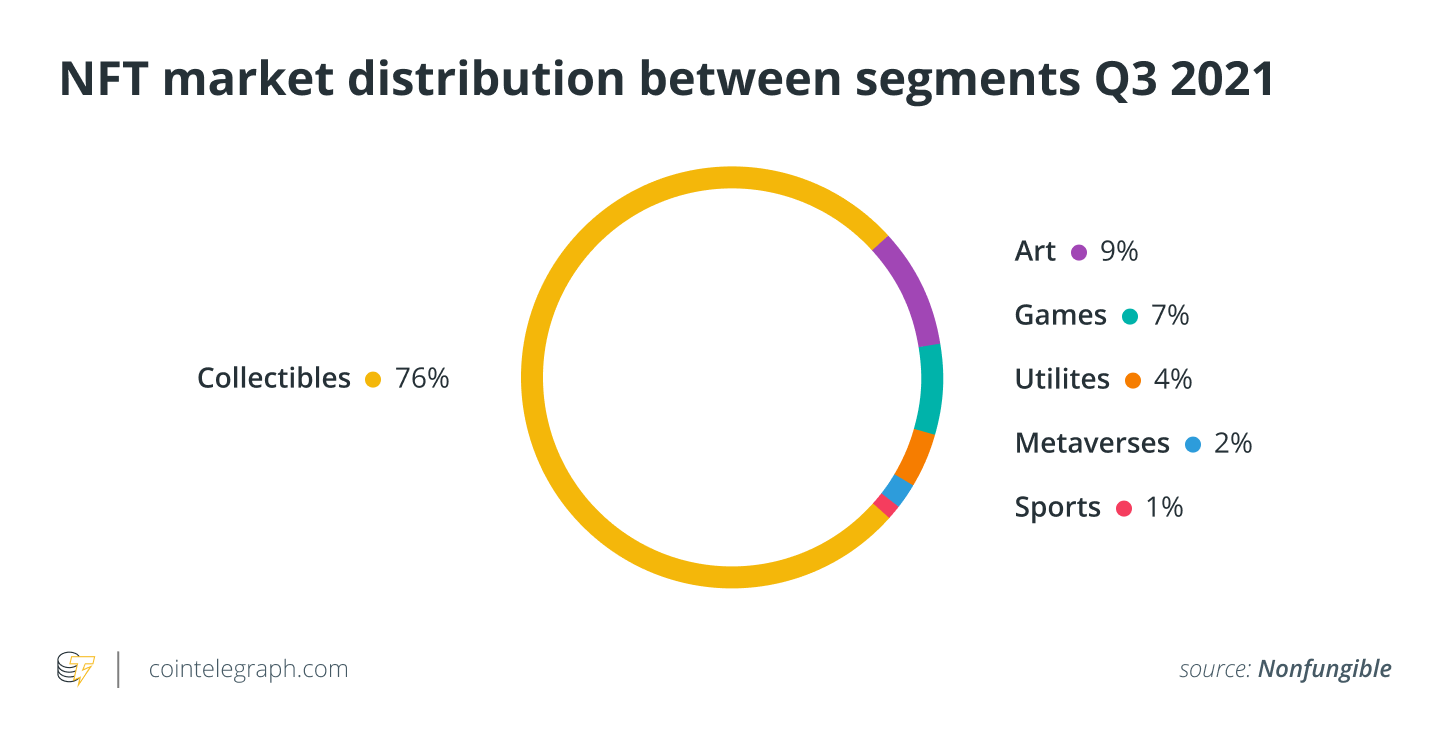MicroStrategy's Significant Bitcoin Impairment Losses May Mislead: Berenberg
Turkish Crypto Exchange Thodex CEO Faruk Özer Sentenced to 11,196 Years in Prison for Collapse
DeFi and Credit Risk
Nike, the National Basketball Association, Pepsi, and even Taco Bell have all hopped on the nonfungible token (NFT) bandwagon. But are these NFTs merely for show, or are they adding value? For at least two reasons, I believe that tokens — and specifically, NFTs — will become as important in the new Web3 economy, just as digital services have become necessary for every firm in and outside of the technology industry.
First, NFTs, in my opinion, tokenize ideas at the atomic level, resulting in rivalry and exclusivity around goods and services. When products and services are non-rival — when one person's consumption does not compete with another's — or non-excludable — when it is too expensive to use a price mechanism to restrict access to a good or service — markets cannot form. By utilizing smart contracts on the blockchain to deliver NFTs to people's digital wallets when they make a purchase, NFTs, on the other hand, foster competitiveness and exclusivity.

Second, I believe that businesses may effectively use NFTs to attract and engage different tiers of customers in their own distinctive ways. Unlike traditional marketing, which includes selling goods and services at a reduced price for a limited time, NFTs enable firms to target specific customers and reward those who engage. For example, a fashion brand may opt to airdrop discount codes or unique offers to NFT subscribers that are not available anyplace else. Normally, doing so at scale would be prohibitively expensive, but NFTs make it possible.
Creating a community
However, the majority of NFT applications to date have been among larger brands – or so it appears based on media coverage. Smaller businesses and even independent business owners will benefit from NFTs in the future if they devote the time and effort to learn how they function. Consider the following categories of companies that are most likely to gain from NFTs: The reduction in cost that NFTs enable to target consumers and invite them into a community benefits smaller firms who may not have as much of a marketing budget to launch large-scale campaigns and discounts.

Forget the tens of thousands or even hundreds of thousands of dollars spent on email lists, sales funnels, surveys, and market research. Understanding your competition and knowing your customer will always be vital, but the landscape changes dramatically when you consider reaching individuals on a blockchain based on their opt-in and the ability to track what they are actually buying and engaging with in a transparent manner.
That isn't to imply that marketing isn't important. Insofar as consumers need to learn about the goods and services being offered, marketing and exposure are important. However, the mechanism behind it is changing — merely having a large budget will not get you as far as a smaller organization or an independent business owner with a strong network of dedicated clients. NFTs are merely a new technological mechanism for delivering competing and exclusive goods and services to individuals who value them; they are not a replacement for developing valued commodities and services in the first place.
Consider the benefits of airdrops and governance tokens, which I've already discussed in Cointelegraph Magazine, citing Gary Vaynerchuk and 3LAU. Airdrops are a terrific way to reward early users and establish a close community when utilized with intention and caution. The community then grows and enters a new phase as momentum grows.
Increasing the value of B2B services
Although it's easy to see how NFTs may improve the consumer experience across a variety of industries, from fashion to content creation, what about firms that provide services to other enterprises?
The fundamentals are the same. Consider a consulting firm where companies bid on different consultants over time by purchasing their NFTs. The remuneration of consultants would therefore fluctuate based on market demand and supply, giving stronger incentives for each person to carry their weight and provide value in the process, as well as a way for organizations to recruit their desired top talent.
The same might be said for a higher education school where academics create NFTs of their content and sell them to businesses as a secondary source of revenue, reducing the need for ever-increasing tuition. In addition, rather than just talking about market demands, such an approach would motivate professors to generate content that truly resonates with them.
Consider the influence that tokens could have on an organization's internal labor market, in addition to the outward-facing component. The lack of a price mechanism is one of the most significant issues facing organizations, as evidenced by contributions by Nobel Laureate Ronald Coase in a 1937 work and another Nobel Laureate Oliver Williamson in a 1981 study.
Because prices in a market are used to allocate supply and demand, there is an issue within organizations: no price! Internal labor markets and organizational decision-making, on the other hand, are governed by hierarchies. However, they are inefficient, and a variety of transaction costs — or elements that create a barrier between what people want and need to exchange — exist.
Such frictions can be alleviated by implementing an internal economic system that uses tokens to ease trading. Raising an employee's wage, for example, is a risky investment, but paying them in tokens gives them more skin in the game and provides incentives to perform because the tokens can only be redeemed if the employee stays with the company. Creating such an internal ecosystem is obviously not simple, and there are costs and benefits to consider in greater depth, but at their core, tokens have the ability to fundamentally change the discourse regarding transaction costs.
Taking inventory
It's easy to get swept up in the excitement surrounding NFTs — and even fungible tokens — without understanding why. Clearly, the Web3 revolution we're experiencing is unique, but it's sometimes difficult to pinpoint why. The potential of NFTs to establish rivalry and exclusivity at the atomistic level around ideas, I believe, is the secret sauce, and this has important ramifications worth examining further.
=====















